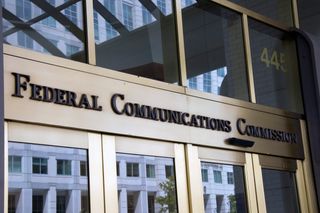Sen. Kennedy Urges FCC to Reject C-Band Alliance Proposal

Count Louisiana Republican Sen. John Kennedy among those not supportive of a satellite operator proposal to reallocate C-band spectrum via private sales.
That came in a letter from Kennedy to FCC Chairman Ajit Pai, in which he said the FCC should reject that proposal.
The FCC is currently considering how to free up more C-band spectrum for 5G wireless, but Pai told Multichannel News last week that the FCC had yet to make any decision.
The band is used by cable operators and broadcasters for satellite reception of network programming.
Kennedy said he was all for finding more spectrum to win the race to 5G and that mid-band spectrum like the C-band is certainly suited to the task. But he left no doubt he had major doubts about the C-Band Alliance plan. He said the FCC spectrum search has to be fair, open and transparent and said he was concerned the alliance plan met none of those benchmarks.
"A privately managed spectrum sale conducted behind closed doors will favor certain parties, exclude others, and most importantly, lead to the inefficient deployment of valuable 5G spectrum," he said, clearly casting his lot with an FCC auction. "[A] public auction put on by the FCC would allow for the most competitive allocation of licenses to best enable 5G deployment. It will also permit a fair, open, and transparent process."
The C-Band Alliance, which includes Intelsat, SES, Eutelsat and Telesat, said it will strike secondary-market deals for the spectrum within three years of an FCC decision.
Broadcasting & Cable Newsletter
The smarter way to stay on top of broadcasting and cable industry. Sign up below
It argues that secondary-market transactions are the best and fastest way to re-purpose the spectrum. "An FCC auction of mid-band spectrum could not take place until 2021-2022 or later. Litigation with current satellite operators could push that date much further into the future. By that time, the United States would be a small object in China’s 5G rear view mirror."
Kennedy is anything but persuaded, calling the plan instead "a fundamental reorganization of the C-band out of public view. The stakes are too high for the FCC to outsource this critical function to unaccountable, foreign-owned private parties.
“Luxembourg shouldn’t reap huge profits at the expense of Louisianans," Kennedy wrote. "A multi-billion dollar, closed-door spectrum deal would mostly benefit foreign-owned satellite companies. The C-band needs to be put up for public auction. Our rural families stand to lose the most when only one or two giant corporations control all of the spectrum access. Competition is what makes America the great nation that it is today.”
The FCC in July voted unanimously to find ways to open up the C-band spectrum (3.7-4.2 Ghz) for terrestrial wireless use, either all of the 500 MHz or some portion of it, and through either an incentive or capacity auction, a market mechanism where incumbents voluntarily strike deals to reduce their footprint, or some other means.
“The CBA proposal addresses many of the concerns cited by Senator Kennedy," said an alliance spokesperson. "First and foremost, our proposal does not feature a closed-door transaction, but instead an open-market transaction to which we have already invited approximately 300 U.S. communications providers to compete—just as Senator Kennedy urges. The FCC would provide final approval of any and all agreements reached between the CBA and current and prospective 5G service providers. Further, our proposal directly addresses rural broadband concerns. Our FCC filings indicate that the CBA will set aside some spectrum in the lower populated PEAs for auctions on which Tier 1 operators would not be permitted to compete. This would encourage rural broadband providers to compete for spectrum that would allow them to launch new services in Louisiana ---and every state in the continental U.S.
“That said, we differ from Senator Kennedy on a major point. Where rural families--and all Americans--really stand to lose is if the U.S. fails to win the race to 5G. The CBA proposal is designed to protect the C-band delivered television and radio services currently enjoyed by over 100 million U.S. households, while at the same time achieving the clearing of spectrum in 18 to 36 months from an FCC order. We are confident that the CBA proposal safely clears spectrum more quickly than any other path under consideration by the FCC or the Congress.”
Contributing editor John Eggerton has been an editor and/or writer on media regulation, legislation and policy for over four decades, including covering the FCC, FTC, Congress, the major media trade associations, and the federal courts. In addition to Multichannel News and Broadcasting + Cable, his work has appeared in Radio World, TV Technology, TV Fax, This Week in Consumer Electronics, Variety and the Encyclopedia Britannica.

